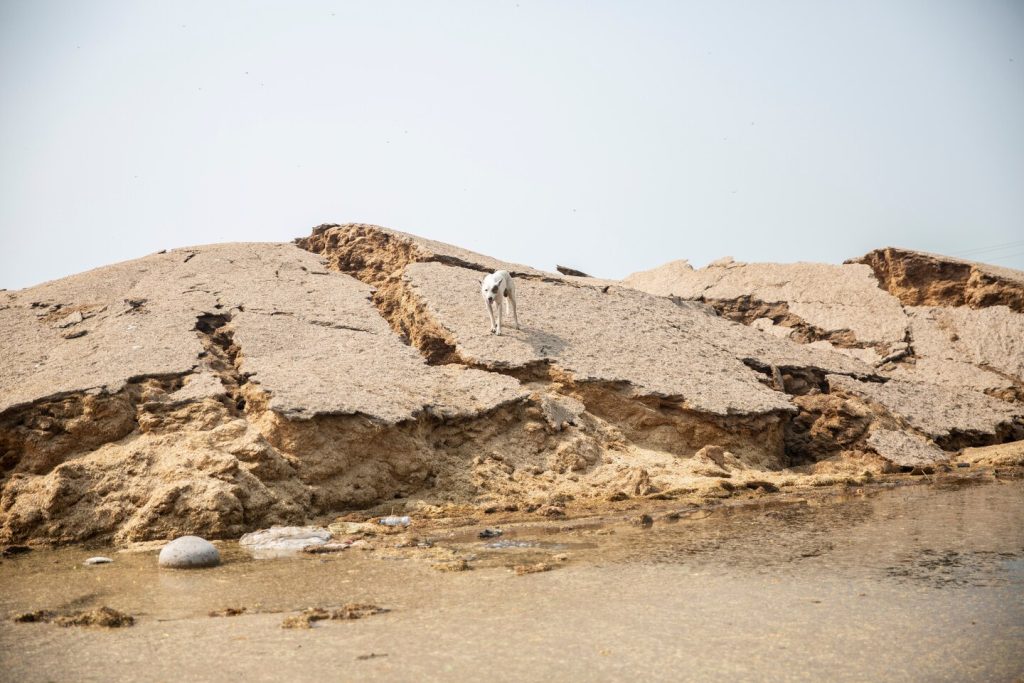Islamabad/Belem: As the world prepares for COP30 in Brazil this November, Pakistan’s leading climate and sustainable development expert, Ali T. Sheikh, has warned that growing geopolitical tensions, surging global military expenditure, and political denialism threaten to derail decades of fragile climate cooperation.
Speaking ahead of the world’s largest diplomatic gathering on climate change, Sheikh expressed concern that climate finance — already a contentious issue — will face severe setbacks. “The axe will fall on climate finance,” he cautioned, pointing to NATO’s recent agreement to raise defense expenditure by 5% of GDP. “It will bring the world upside down and undo 30 years of climate cooperation since the first COP.”
A Fragile Global Context
The lead-up to COP30 comes amid turbulent global trends: rising right-wing extremism, corporate retreat from climate pledges, and intensifying militarism. Against this backdrop, Sheikh argued, understanding how COPs function — and who actually sits at the negotiating table — becomes more critical than ever.
He noted that while UN agencies, intergovernmental and non-governmental organisations take part as accredited observers, the private sector usually joins under government delegations but lacks formal status.
Pakistan on the Climate Frontline
For Pakistan, Sheikh stressed, dismissals of climate change by global leaders like former US President Donald Trump carry devastating implications. Trump’s recent 56-minute address at the UN General Assembly, where he called climate change the “greatest con job ever” and green energy a “joke,” was singled out as particularly damaging.
“From the perspective of a developing country like Pakistan, such statements are a profound denial of our lived reality,” Sheikh said. “The catastrophic floods of 2022 and 2025 — which submerged one-third of the country and displaced millions — prove climate change is not a future threat. It is immediate and existential.”
He noted that the 2022 floods alone caused over $30 billion in losses, setting Pakistan’s economy back by years.
From Protest to Partnership
While sharply criticising Trump’s rhetoric, Sheikh urged Pakistan to adopt a forward-looking strategy at COP30. “When we go to Brazil, we should not go there to ask. Instead, offer a partnership,” he said, pointing to successful examples such as Sindh’s housing project for flood victims and the large-scale evacuation of more than 3 million people during recent floods.
He recommended that Pakistan’s delegation clearly define priorities, including improved construction standards for climate-resilient housing and infrastructure, leveraging technologies like artificial intelligence.
At the same time, Sheikh urged a shift in diplomatic approach: “Our pavilions at COPs are often designed to speak only to ourselves. Instead, we should seek platforms at other countries’ and organisations’ pavilions — where the audiences are broader and more influential.”
Regional Cooperation and India Factor
Highlighting the regional nature of Pakistan’s climate challenges — from Himalayan glacial lake outburst floods to Arabian Sea tropical storms — Sheikh emphasised the need for regional cooperation.
“Even a modest conversation with India could mark a critical first step,” he said, citing the stalled Indus Waters Treaty, which New Delhi put in abeyance after the April attack in Pahalgam, IIOJK. He suggested COP30 could provide a neutral space to reinitiate dialogue, starting with transparent data sharing on monsoon rainfall.
Beyond Official Halls: The Real COP
Sheikh, who has attended numerous COPs as both an official delegate and an independent observer, described the reality behind the grand sessions. “To say that COPs are useless is simplistic. Much of the real action happens outside plenary halls — in corridors, coffee lines, and side events, where coalitions are quietly built and deals informally struck.”
According to him, this “off-stage diplomacy” — involving private sector actors, like-minded nations, and NGOs — is often more consequential than the official declarations.
Brazil’s Challenge
With COP30 being hosted in Belem, at the edge of the Amazon rainforest, Sheikh said expectations will be high. Brazil will be expected to lead on deforestation, biodiversity, indigenous rights, and climate justice.
Yet he warned of contradictions: while Brazil hosts the event, deforestation and new oil drilling continue within its borders. “The bar is high, but the reality is sobering,” he said, noting that climate finance architecture remains stuck on “who pays, who delivers, and how quickly.”
Still, Sheikh concluded, dismissing COPs outright as failures would be short-sighted. For frontline countries like Pakistan, every diplomatic space matters. “It may not always deliver breakthroughs, but it offers opportunities — if we are prepared to seize them.


